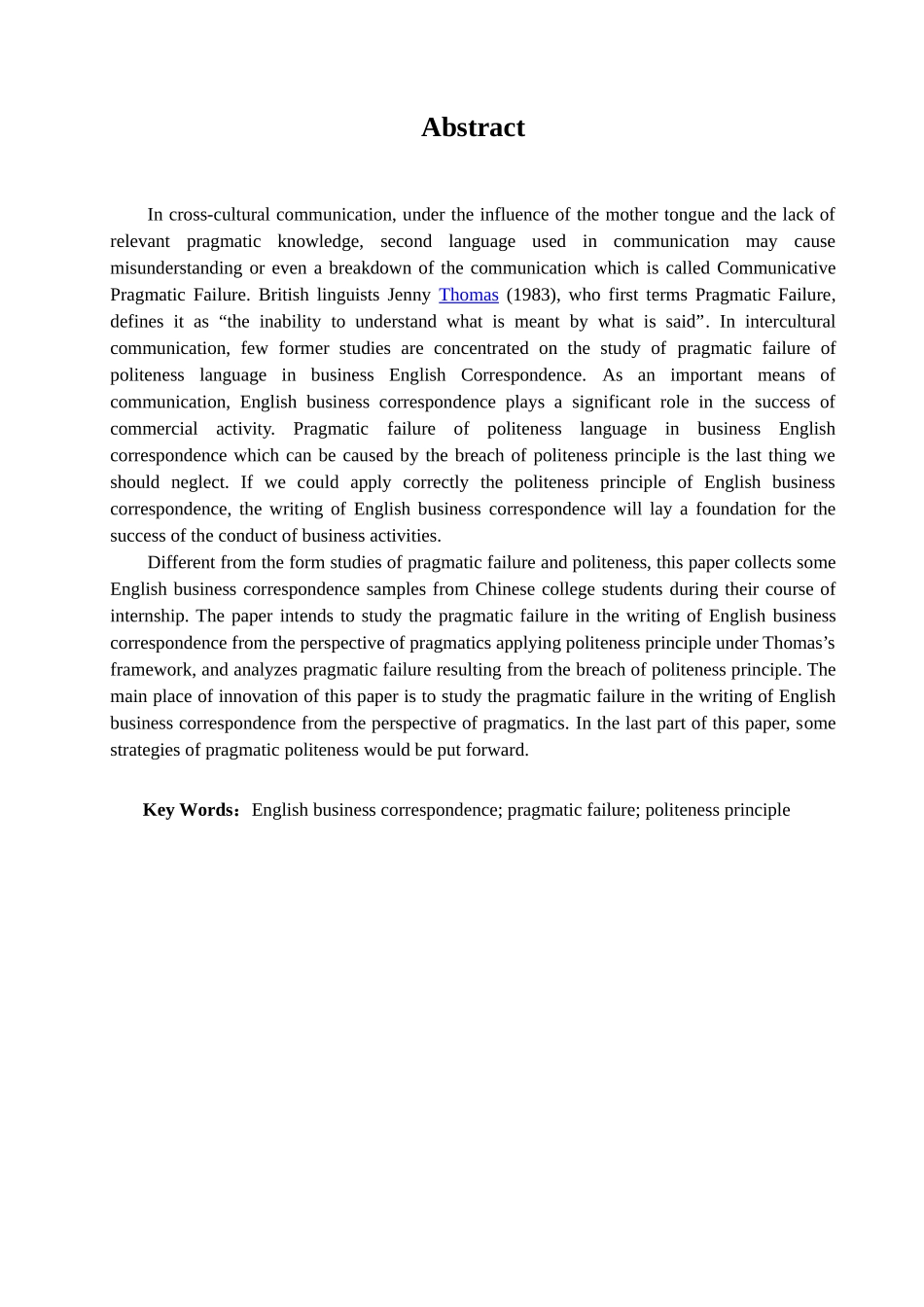AbstractIn cross-cultural communication, under the influence of the mother tongue and the lack of relevant pragmatic knowledge, second language used in communication may cause misunderstanding or even a breakdown of the communication which is called Communicative Pragmatic Failure. British linguists Jenny Thomas (1983), who first terms Pragmatic Failure, defines it as “the inability to understand what is meant by what is said”. In intercultural communication, few former studies are concentrated on the study of pragmatic failure of politeness language in business English Correspondence. As an important means of communication, English business correspondence plays a significant role in the success of commercial activity. Pragmatic failure of politeness language in business English correspondence which can be caused by the breach of politeness principle is the last thing we should neglect. If we could apply correctly the politeness principle of English business correspondence, the writing of English business correspondence will lay a foundation for the success of the conduct of business activities.Different from the form studies of pragmatic failure and politeness, this paper collects some English business correspondence samples from Chinese college students during their course of internship. The paper intends to study the pragmatic failure in the writing of English business correspondence from the perspective of pragmatics applying politeness principle under Thomas’s framework, and analyzes pragmatic failure resulting from the breach of politeness principle. The main place of innovation of this paper is to study the pragmatic failure in the writing of English business correspondence from the perspective of pragmatics. ...


